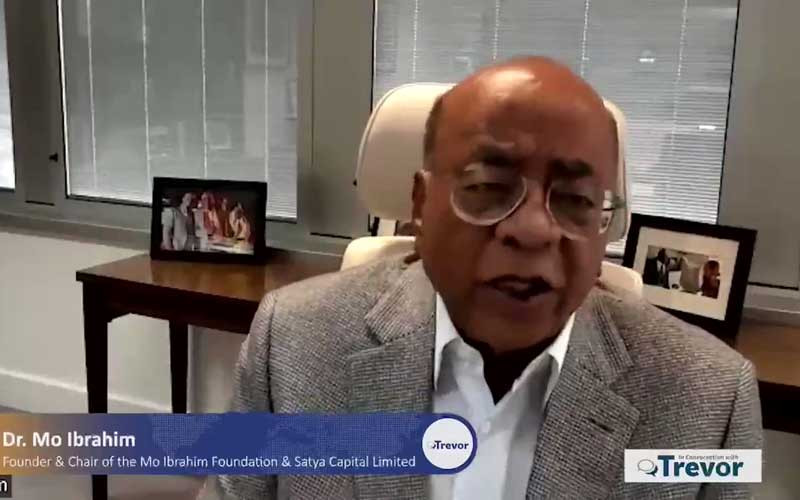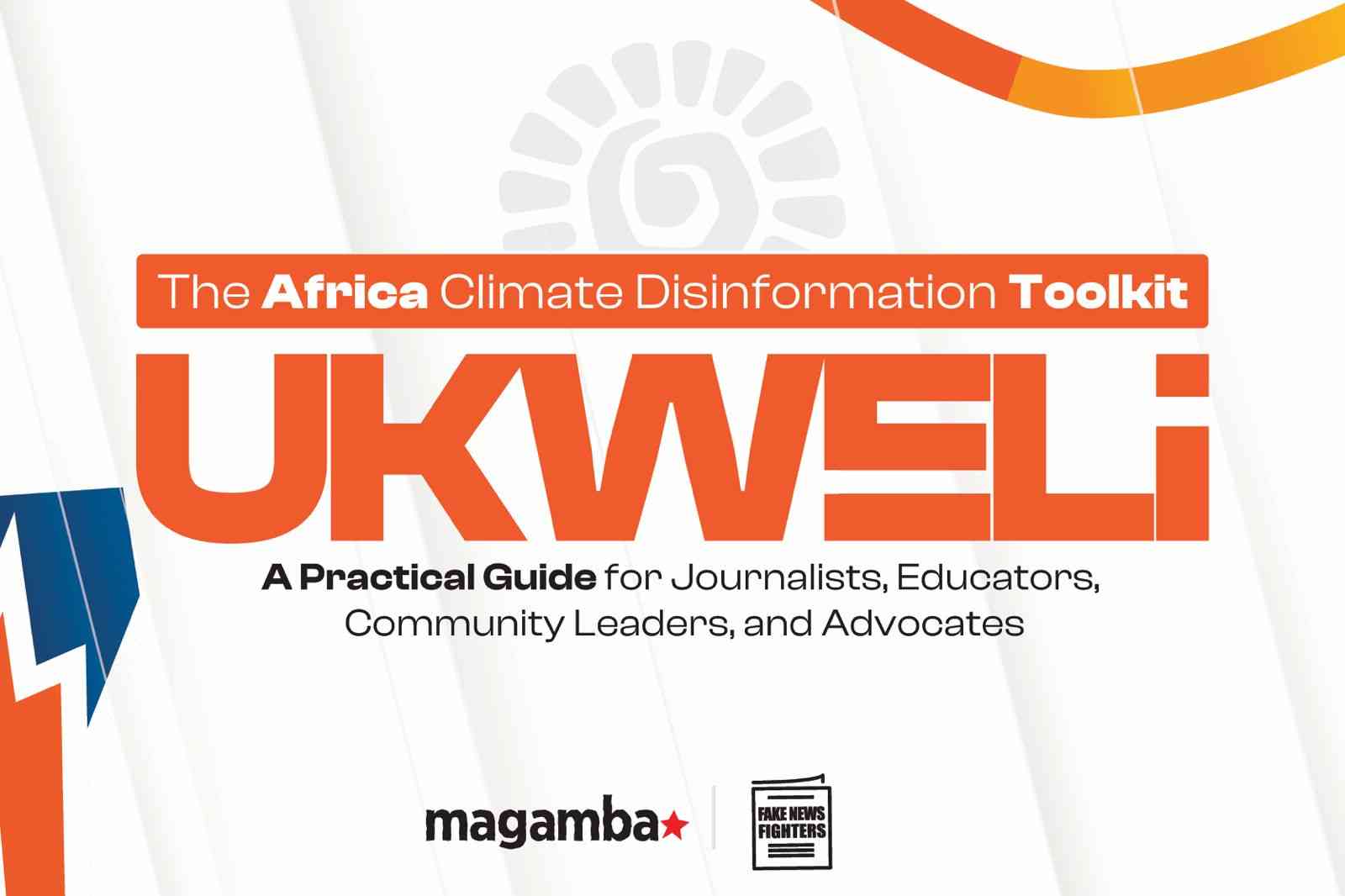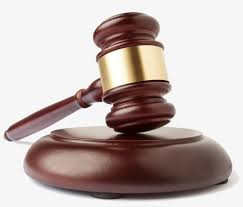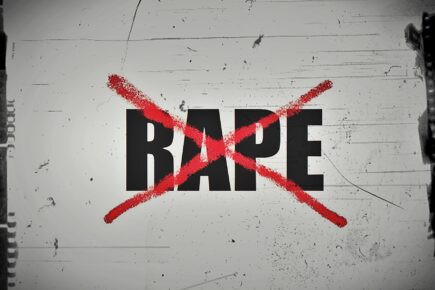
Mo Ibrahim Foundation founder and chairman Mo Ibrahim says he came with the idea of honouring former African leaders that democratically transfer power to their successors to encourage good governance on the continent.
Ibrahim (MI), who is behind the US$5 million Mo Ibrahim Prize for achievement in African leadership for former presidents, told Alpha Media Holdings chairman Trevor Ncube (TN) on the platform In Conversation with Trevor, that leadership was important to move Africa forward.
TN: Mo Ibrahim, I have finally pinned you down! Where do I find you Mo? Where are you?
MI: At the moment I'm in my office in London. I am always at your disposal Trevor, you know that.
TN: Absolutely Mo, thank you so much.
Mo you have done so many things, but I thought let us start with heavy lifting.
You decided in 2006 that you would establish the Mo Ibrahim Foundation. Walk us through Mo what you are thinking to us.
You have just come out of being an entrepreneur, a successful entrepreneur.
- Open letter to President Mnangagwa
- Feature: ‘It’s worse right now than under Mugabe’: Sikhala pays the price of opposition in solitary cell
- Masvingo turns down fire tender deal
- Human-wildlife conflict drive African wild dogs to extinction
Keep Reading
We are going to talk about that later on, but at the moment; so in 2006 you decide you want to form the Mo Ibrahim Foundation? What was your thinking?
What is it that you wanted to do?
MI: Very simple actually. I mean I have been in business for a number of years, I established MSI (Mobile System International), very successful and with a lot of money we decided to invest this money in Africa and develop self-tail to introduce mobile phones mainly in Sub-Sahara Africa, and that also proved to be a great success beyond our expectations.
In 2006 I found out that I made a lot of money, and I have never aspired, to be honest, to be a businessman.
I was brought up as a socialist, as a young socialist, and I always, you know, thought so suspiciously of business people, and here I am, I found myself a businessman and so I really decided that this money, or most of it I should really give it back to Africa.
Africa where we made money, and Africa where I come from, so it is where I am going to give my money and that I follow literally.
I do not do anything outside Africa. Now what do you do? That is the previous conversation. You mentioned it may be easier to make money than to spend it.
TN: Yeah.
MI: You think okay shall I take some babies' milk or blankets to refugees, displaced people?
Shall I do this or that, but I thought these are all aspirins, it does not deal with our main issues in Africa.
This is because Africans should not be poor. This is a fact, we should not be poor, we have resources, we have a huge continent and we should not be poor.
The question of charity is nice, I always thank people who are charitable, but we do not need to wait for charity.
So why are we poor? I thought we are poor because we have of course had a history of slavery, colonialism, and Cold War stuff like that, but also we shot ourselves in the foot.
We mismanaged our resources, we mismanaged our material resources and our human resources.
That was and is a huge mistake. What we need in Africa is better governance, we need to really develop our resources in a broader way for our benefit, not give it away for peanuts or bribes and Ferraris or whatever, and again development of our people.
That is why I decided to really focus on dealing with that issue, how to improve the lives of our people in Africa through better governance and better leadership.
TN: So, Mo you have been very laser-focused in terms of defining what governance is, and what are the key issues that you are going to focus on.
Just walk us through Mo, the things that you thought were important to bring about good governance and, therefore, prosperity on the continent?
MI: Right Trevor. There is no difficulty here, there is no magic about it, it is so simple.
Good governance is about delivery of that basket of public good to citizens. You come to power as a government to serve the people, not for the people to serve you, and you need as a government to deliver.
This is straightforward because we do not want to evaluate speeches, party political programs, broken promises or the like.
What has been done? What has been delivered? That is a measure of governance, and this basket of goods is very simple in terms of what people need.
What people need is safety and security and that is very important.
People need economic development, they need jobs, they need better education, they need better health care, they need equality, and no marginalisation of other communities, women’s rights.
All these things are the deliverable, which needed to be delivered to the people, and we said that is governance and we have to go and measure it and present it to the African people so they understand what's going on.
TN: I like the fact that you have added in what I saw and was reading in a 2020 report where you have added four dimensions, which are participation, rights and inclusion, security, rule of law, and human development.
Also including digital rights. I mean that you are keeping in tandem with what is happening as far as the technology space is concerned.
MI: This is true. I mean we started the index sum 14 or 15 years ago. For example, now the environment is important, it came at the top of our agenda. So we are starting now this year to also measure the sustainable environment. Are we scaling our environment or are we destroying it? so we have to keep moving of course.
TN: Then you created the Ibrahim Index Of African Governance, and in 2007 you initiated the Mo Ibrahim Prize for achievement in African leadership.
Where you would offer US$5 million to an African head of state who achieved the governance indicators as you outlined, but also democratically transferred power to their successor.
When you look at that, was that the wisest use of Mo Ibrahim’s money?
MI: I think so. We had very wide-ranged discussions before we launched this.
I went to talk to maybe 50 or 60 very serious leaders about the issue of leadership in Africa.
I talked to people like (Nelson) Mandela, I talked to people like Kofi Annan, and we had lengthy discussions.
I was with (Thabo) Mbeki, a lot of people, and also some Europeans whom I respect, some good people.
Leadership is very important to help us to move forward, and we have a number of problems here. First, we have the transition of power...
TN: Yes.
MI: Has always been a problem, how to carefully transfer the power.
We also have the fact that good leaders of Africa are never recognised, that may come as a surprise to you.
A man who lived in South Africa and and Zimbabwe, because Nelson Mandela is one of the most celebrated leaders, but that is only Mandela.
TN: Yes.
MI: Nobody knows about others. I was giving a lecture at London School of Economics a few years ago for the postgraduates.
There were about 200-250 people in the room, including some 70-80 Africans.
These were the elite of the elite, you know these were the young people who got a one-run countries and companies etcetera.
I was debating with them the issue of the leadership. Some were challenging me and saying well what are you doing here?
I then said say listen guys, we have a lot of good leaders in Africa, the word out in the street that Africa is full of dictators, full of criminals, and we need to really balance the discussion there. We are the first to condemn the bad guys, but we need to recognise the good guys as well.
TN: Yeah.
MI: Then I challenged those guys; I said okay raise your hand everybody who knows Mobutu.
Everybody raised their hands. Who knows (Robert) Mugabe raise your hand. Everybody knows Mugabe.
Idi Amin? Everybody knows Idi Amin. Omar Bashir? Everybody knows Omar Al Bashir.
I said okay, Joachim Chissano? They looked at each other. Festus Mogaei? Nobody. I went through the list.
I said excuse me, really I must say shame on you.
You are intellectuals, use it, and especially the African guys who were there and they did not know our good guys and you only know the bad guys.
What legacy are we giving to our young people? Look Trevor, if you are a good leader, when you finish your term you finish with clean hands.
TN: Yeah.
MI: No blood, no dirty money. Then you have nowhere to go. What do you do?
Some leaders could not find a place or an apartment to rent in the capital they lived in. You know Kenneth Kaunda?
Some engineers had offered this house to him but he had no place to go.
It is just incredible! Even Julius Nyerere had no place to go. This is a problem.
When President Barias of Cape Verde lost his first election, he was president and he went to go and stay with his mother.
He took his kids and went to stay in an apartment with his mother.
When you are a European or American leader, when you finish the board of any bank global fund is open for you.
You start to earn millions yeah? People make money after politics.
TN: Oh yeah.
MI: Okay. In our case our good guys have nowhere to go, we think this is a bad thing because we need the good presidents to be recognised, we need to shine them and put them out there for the world need to know we have good people.
For our kids to know we have good people, they need to have role models and we need to present those role models for them and we need the outgoing leaders then not worry about earning money but go now and work in civil society.
So this money is peanuts, it is what it produces that is a wonderful effect.
People will know who these individuals are, who then will be invited by the UN to do this and that, invited by Europeans.
People will know these leaders and recognise these leaders and that will change the picture of Africa.
Then our daughters look at a great lady leader like Ellen Johanson as a role model and say oh I want to be like that.
TN: Yeah. But Mo are you not doing what the citizens should be doing to pressure their governments to put in constitutions that allow a leader who steps out of power some level of comfort.
I think South Africa has provided a good example in that regard. Should you not rather be tackling that kind of stuff Mo? Please push back?
MI: That is wonderful if it happens, then there is no need for the prize, because we have no alternative. If if there is something in place to honour and recognise good leaders we will stand back.
TN: So just run through some of the prize winners Mo. Joaquim Chissano, what a man.
I mean I met him on the plane, wherever you meet him he is talking about his cattle and his farming.
Of course the late Nelson Mandela. Festus Mogae, great guy I have flown with him a number of times, Hifikepunye Pohamba, great guy.
Ellen Johnson Sirleaf, very illustrous person. Then Mahamadou Issoufou. Talk to me about those and what you have learned from those leaders Mo.
MI: These are wonderful people who came to power and really did unexpected things.
You know when Chissano came to power after the victory of Frelimo.
Now he decided to introduce multi-party democracy, and there was a great opposition for that within the movement, and he went against the majority opinion of the people in the movement who said we came to power, we liberated you, we own you and you have a lot of liberation movements in the region who are doing that.
Let me not name anybody now, but that went against trend.










